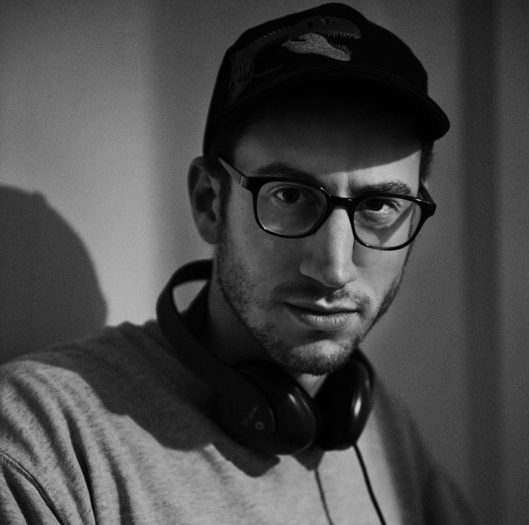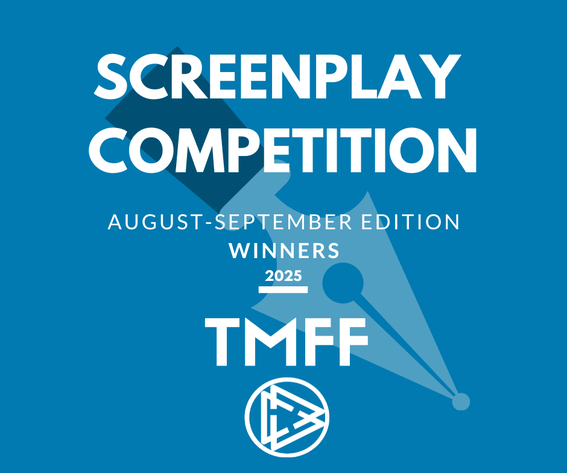We had a quick chat with Nicolas van Ruychevelt, the writer and director of last month’s big winner: Far Away. While the film certainly does not come from far away – just neighbouring Belgium – it has deeply impressed all of us with its depiction of a strained relationship.
JL: Congratulations, Nicolas, on the trio of awards! A sneaky glance on our behalf showed that you’ve been gathering an impressive number of prizes for your film – is it performing according to your expectations?
Nicolas: According to my expectations, no, it’s performing way better. This is a movie that took quite a while to set up, and that has been created in pain, partly because it was made on such a thin budget. I have to admit I wasn’t expecting so much awards on an international level. Far Away has been so far a complete success on that front.
JL: Far Away was not your first short film project, right? Would you like to tell us more about your past work?
Nicolas: I started directing slapstick videos on youtube, through my channel Rockin’ Chair Video. That is through that very channel that I produced my first short film Fighting Story, which adressed romantic comedy through a boxing match. The ambition was to use the gimmicks of the genre only to divert them. This first short got some recognition at a festival, leading me then to get hired up to direct a short way more serious and politically involved (Diversion). Recognising myself in the values voiced by the story, so writing a scenario was a piece of cake. The exercise was completely different from the rest of my work as I was only a hired gun on the project, I had to answer to specifics criteria in the story. The writing process wasn’t completely unchained. That’s precisely what led me to write and direct Far Away, a movie closer to my heart in terms of film grammar.
JL: The shift from comedy to serious drama is sometimes very difficult for a screenwriter/director. However, it worked wonderfully in your case. What’s the secret behind your success?
Nicolas: I can’t say there is such a thing as a « secret » or a key to success, as it has been said over and over (And I’m joining on that chorus), the necessary things here are work and perseverance. It took me over one year and a half to write and produce Far Away. One important thing in my opinion is to endlessly question yourself, from the writing process to the shooting. I’m always doing my best to listen to the people surrounding me and their various suggestions. If today’s film has nothing to do with the previous version of the script, it’s mainly because I gave it to be read all over the crew, I listened to the actors, the cinematographer, a script doctor, the ditor. I managed to gather quite a solid entourage during the making of Far Away and that strongly contributed to its success.
JL: Any particular source of inspiration for the subject of Far Away?
Nicolas: There have been many different inspirations for that movie, starting up with the movie Shame by Steve Mcqueen, also focusing on sexual drift, the mise-en-scène and the colors inspired quite a big deal in the artistic direction of Far Away. As far as the writing goes, it comes from the book The devil all the time, by author Donald Ray Pollock. The writer manages to cast its characters in immense distress that pushes them to inapprehensible behaviour. Last but not least, when I gave the manuscript to various people, some of them shared a few personnal stories that were food for thoughts while rewriting the script.
JL: Your film is a slow-burner, a sort of contemplative meditation that takes its time and really gets under your skin. It could be compared, in this respect, to the styles of Lars von Trier and Michael Haneke, to name a few. Which filmmakers would you see as sources of inspiration?
Nicolas: As mentioned earlier, Steve Mcqueen. But the most important director for me nowadays is Darren Aronofsky. He has a very carnal way of directing his characters, close to their skin. IT gets almost fetishist at some point. The body has a central important in its movie, and I have to say that has been a real inspiration. I cherish the dream that someday he could see my movies and that could just have a beer or two to discuss them.
JL: Is the incompatible relationship between Léa and David symptomatic of 21st century romance, or did you intend to present the story as more of a timeless meditation, not anchored in any sort of social perspective?
Nicolas: I believe it to be a universal issue, not exclusive to our times as it has always existed. In the movie, beyond simple incompatibility, I am mostly treating impotence (in all its shapes and manifestations), physical impotence for David but also Lea’s powerlessness when confronted to David’s silence. From there it just escalates. I believe everyone has been one day or another confronted with powerlessness. That very theme is close to timeless meditation. In the movie, I offer a solution to my protagonists, though these very solutions might not be fit for everybody, they are my personal answer to the issue.
JL: Mickaël Pinelli won the Actor of the Month award – congratulations to him as well! Have you worked with him before, or was this your first collaboration?
Nicolas: It was the first time I collaborated with Mickael, which I had met in Lyon in a theatre festival. We quicly clicked together. At that time, I was still looking for more characteristics for David, but when I met Mickael, it immediately seemed like an evidence, he was the one to play David. Though I also believe that the coherence in David’s character also came to be thanks to Lea’s interpretation who played Lea. On set, both actors wouldn’t spare anything to each other in order to get to that very special place where the mood feels right. I’m very glad to see how invested they were and how they managed to get out of their safe space to give shapes to the characters I had written.
JL: Do you have any upcoming projects planned, or are you currently taking a rest and focusing on marketing Far Away?
Nicolas: Far Away will indeed go on the festival path for another year. But that doesn’t mean I’m gonna stop working. I’m currently pre-producing my next short film, even more ambitious that will require way more funds. I can’t really talk too much about any themes as it would reveal too much of the plot (I of course hope you’ll discover it yourself for the next TMFF) but main storylline is basically two sisters in a small Belgian country-side village looking for their lost dog. That project will mark my first steps in the uncanny/fantasy territory. I hope it won’t be come to life through too much pain, and will know an even better festival lifespan as Far Away.
JL: Nicolas, it was a pleasure! Thank you very much for your time, we wish you all the best for the future!
Nicolas: I’m the one who ought to thank you for the opportunity to express myself on my movie, and to have given it such a good merit with those three beautiful awards. See you soon I hope.









Leave a reply